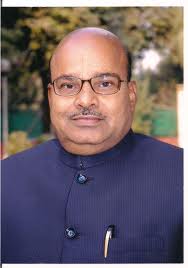
Constitution of India guarantees rights of freedom to all citizens including Divyangjan with regard to freedom, equality, and justice. But in reality, Divyangjan are facing stigma, discrimination, and neglect due to socio-psychological and cultural reasons. Disability, when compounded with discrimination, doubles the quantum of disability. There is a wide spread underestimation of the abilities and potential of persons with disabilities due to general public perception and prejudices, thereby creating a vicious cycle of under achievement. This, in turn, results in inferiority complex among them which further harms their growth. It has taken a long period of time to educate ourselves to demystify the meaning of disability and fight myths and misconceptions of disability. We need to keep these new ideas alive every day so that the old negative attitudes and perceptions do not assert themselves.
Since Independence there was not much focus on the issues of rights of Persons with Disabilities till the Persons with Disabilities (Equal Opportunities, Protection of Rights and Full Participation) Act, 1995 was enacted. It was, therefore, a legal framework providing measures to continuously work for their welfare and rehabilitation. This Act focused on accessibility, reservation in jobs, health, education, and rehabilitation.
In order to give focused attention to Policy issues and meaningful thrust to the activities, aimed at welfare and empowerment of the Persons with Disabilities, a separate Department of Empowerment of Persons with Disabilities was carved out of the Ministry of Social Justice and Empowerment on May 12, 2012. The Department has the vision to build an all-inclusive society in which equal opportunities are provided for the growth and development of Persons with Disabilities; so that they can lead productive, safe and dignified lives.
With the twin objectives of harmonizing the provisions of the Persons with Disabilities (Equal Opportunities, Protection of Rights and Full Participation) Act, 1995 and also to ensure better implementation, the Central Government enacted the Rights of Persons with Disabilities Act, 2016 which came into force w.e.f 19.04.2017. The Act provides the measures to ensure full and effective inclusion of Persons with Disability by way of promoting inclusive education, adequate social security, employment, and rehabilitation.
Under Assistance to Disabled Persons for Purchase/Fitting of Aids and Appliances (ADIP) SchemeGrants-in-aid of Rs. 465.85 crore was utilized in the last three years benefitting 7.60 lakh beneficiaries through 5624 camps. Under the Scheme, 3730 motorized tricycles have been distributed to eligible Divyangjan across the country which includes 248 Mega Camps/Special Camps covering 27 States for distribution of aids and assistive devices under the ADIP Scheme.
For overcoming hearing disabilities in children, 172 Hospitals across the country have been impanelled, for the purpose of cochlear implant surgeries among children with hearing disability. As on date, 839 cochlear implant surgeries have been successfully completed and their rehabilitation is underway.
Under educational empowerment, Government is implementing five Scholarship Schemes, namely, Pre-Matric Scholarship Scheme, Post-Matric Scholarship Scheme, Top Class Scholarship Scheme, National Fellowship for PwDs and National Overseas Scholarship Schemes covering students from Class 9 to M.Phill/Ph.D. Level and studies abroad.
The Government has set up Indian Sign Language Research and Training Centre (ISLRTC), Okhla, Delhi. The main objective of the Centre is to develop manpower for using, teaching and conducting research in Indian Sign Language for the benefit of persons with hearing disabilities. The action is underway to prepare the Sign Language Dictionary of about 6000 words.
In order to meet the requirements of specific disabilities, Govt. of India has established seven National Institutes (NIs) in specific disabilities under the Department. These are engaged in Human Resource Development, providing Rehabilitation Services to the Persons with Disabilities and Research & Development. Four new Composite Regional Centres at Rajnandgaon (Chhattisgarh), Nellore (Andhra Pradesh), Davangere (Karnataka) and Nagpur (Maharashtra) have been set up. In Aizwal, a Disability Study Centre is being set up.
The government has approved modernization of Artificial Limbs Manufacturing Corporation of India (ALIMCO), Kanpur at a total cost of Rs. 286.00 crore, for production of modern assistive devices and to serve around six lakh beneficiaries across the country as against 1.57 lakh number of beneficiaries currently being served by the Corporation.
Among the new initiatives, the Govt. is focusing on facilitating the establishment of the State Spinal Injury Centres to provide comprehensive management of Spinal Injuries at the state level. Under the scheme, a comprehensive rehabilitation center attached to the District hospital of State Capital/Union Territory with dedicated 12 beds shall be set up.The Govt. also proposes to establish 3 centers for disability sports viz. at Zirakpur (Punjab), Vishakhapatnam (A.P.) and Gwalior (M.P.).
The Govt. believes in the involvement of all stake holders including participation of State Governments/NGOs/Civil societies so as to enhance the outreach of the programs/welfare schemes run by the Department to enable Persons with Disabilities to live in the society in an independent and dignified manner.
About: Shri Thaawarchand Gehlot is the Union Minister for Ministry of Social Justice & Empowerment, Government of India.



Leave a Reply
You must be logged in to post a comment.